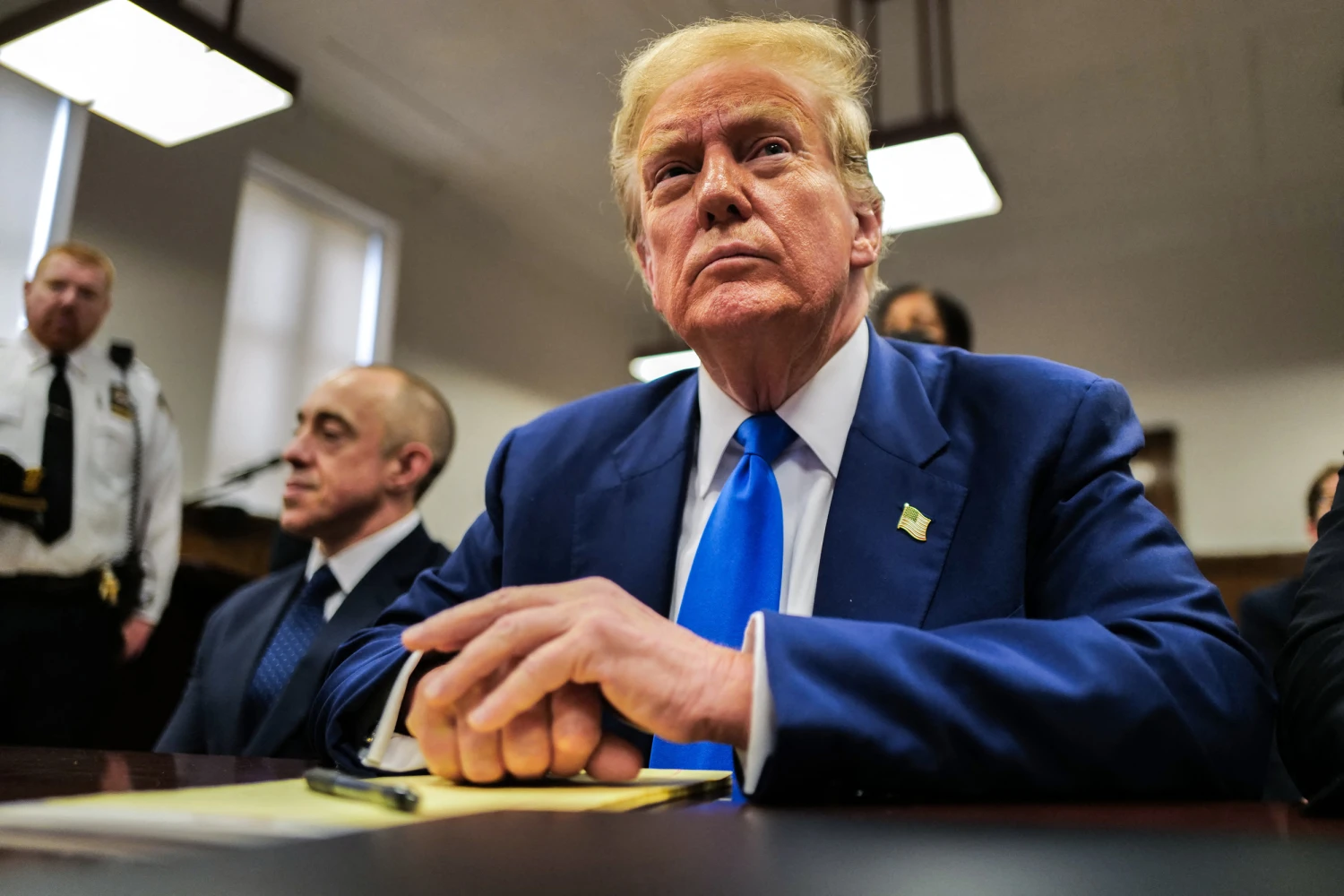In an unprecedented turn of events, Donald Trump has become the first former or serving US president to be found guilty of a crime, marking a significant moment in American political history. This conviction also establishes Trump as the first presumptive major-party nominee to be a convicted felon, presenting a unique challenge for both his political career and the Republican Party as a whole.
As Trump plans his appeal in the hush-money case, he faces a sentencing hearing on July 11 that could result in prison time and a substantial fine. The political ramifications of this conviction are yet to be fully understood, as nothing of this magnitude has ever occurred before. “We often look to history to find some kind of hint of what’s going to happen,” says Jeffrey Engel, director of the Center for Presidential History at Southern Methodist University. “But there is nothing in the record that comes even close to this.”
Despite his legal troubles, Trump secured the Republican presidential nomination earlier this year and is set to be formally endorsed at the party’s convention, which is scheduled just days after his sentencing. Current polls indicate that Trump is in a statistical dead heat with President Joe Biden and holds a slight edge in many key swing states. However, these surveys also suggest that his conviction could alter the political landscape. Exit polls from the Republican primaries revealed that a significant number of voters might reconsider their support if Trump were convicted of a felony. An April survey by Ipsos and ABC News found that 16% of Trump’s backers would reconsider their support under such circumstances.
With a real conviction now in play, voters have a concrete basis for their judgment. “The real verdict is going to be [on] November 5, by the people,” Trump declared after leaving the courtroom. Pollster Doug Schoen, who has worked with Democratic President Bill Clinton and independent New York City Mayor Michael Bloomberg, believes that by November, voters might be more concerned with issues like inflation, the southern border, and international competition rather than the eight-year-old events leading to Trump’s conviction.
Even a minor drop in support for Trump could be pivotal in what is expected to be a razor-thin race. A few thousand voters in key states like Wisconsin or Pennsylvania choosing to stay home could significantly impact the election outcome. Ariel Hill-Davis, co-founder of Republican Women for Progress, believes the guilty verdict will further alienate younger, college-educated, suburban voters who are already wary of Trump’s leadership style.
Despite these potential setbacks, leading Republicans have rallied behind Trump, decrying the conviction as a political maneuver rather than a legal one. House Speaker Mike Johnson called it “a shameful day in American history.”
For eight years, Trump has defied predictions of political collapse, weathering scandals that would have derailed typical politicians. His support base remained steadfast through two impeachments and the tumultuous end of his presidency, which saw the US Capitol attacked by his supporters. This resilience has led to a political resurgence, positioning Trump for another potential White House bid.
“It’s axiomatic at this point, but Trump’s continued support, despite the kind of scandal that would have scuttled literally any other previous candidate in American history, is truly astounding,” says Jeffrey Engel. This conviction, however, might be different, especially if Trump’s appeals fail and he faces prison time.
Allan Lichtman, a professor at American University with a model that has accurately predicted every presidential race since 1984, acknowledges that Trump’s conviction could be the kind of “cataclysmic and unprecedented” event that disrupts historical patterns and alters the course of history. The ultimate judgment on Trump’s conviction will come from the voters in November. Should Trump lose, his guilty verdict might be seen as a crucial factor. If he wins, it could become merely a footnote in his tumultuous political journey. “History is written by the winners, as we all know,” Engel remarks.
